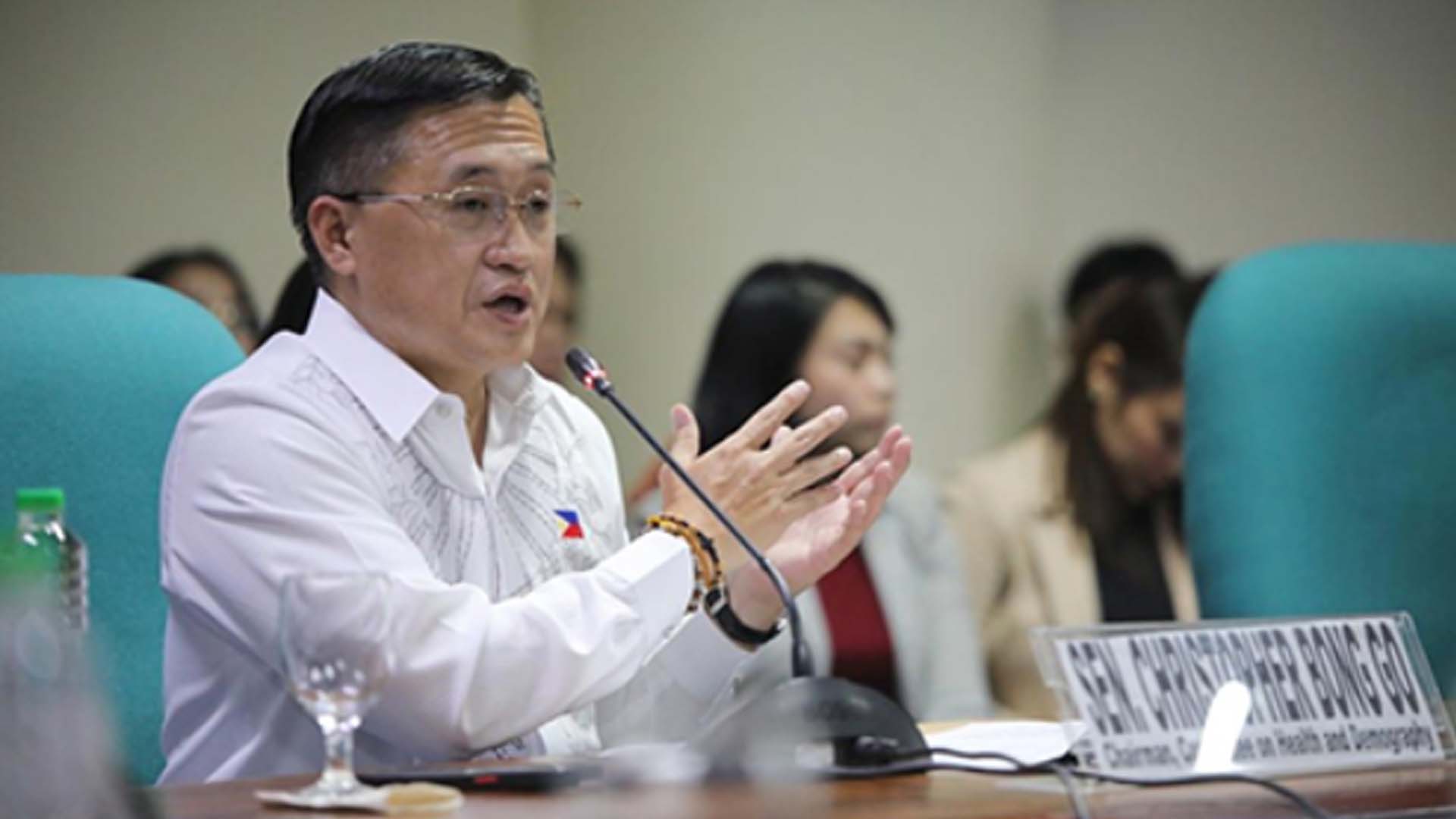Senator Christopher “Bong” Go, Chair of the Senate Committee on Health and vice chairperson of the Senate Committee on Migrant Workers, raised his concern about the mental health of Overseas Filipino Workers (OFWs) considering the possibility of significant stressors they could face in their pursuit of better opportunities abroad while overcoming various crises happening globally.
According to a study led by Dr. Veronica Ramirez of the University of Asia and the Pacific, stressors such as regular communication concerning family issues, financial obligations, homesickness, demanding workloads, and the challenges associated with adapting to a foreign culture, notably the language barrier, are causing considerable distress among OFWs.
The research on “Patterns of Detection and Treatment of Mental Health Problems Among OFWs: Implications to Psychosocial Support Services,” which was carried out from June 2021 to March 2022, involved nearly 1,000 participants, 825 of whom are OFWs.
They found out that the participants have encountered episodes of panic attacks, schizophrenia, paranoia, anxiety, and extreme fear.
For this reason, Go has urged the relevant agencies to integrate the research findings into the creation or enhancement of specialized services and programs addressing the issue.
Go stressed the importance of recognizing and addressing these stressors to ensure the well-being of OFWs who play a crucial role in supporting their families and contributing to the country’s economy.
“Alam naman po natin kung gaano kahirap mawalay sa ating mga pamilya. Itong mga OFWs natin, sila ang ating modern-day heroes. Sila ay nagsasakripisyo upang makapagbigay ng magandang buhay sa kanilang mga pamilya na andirito sa Pilipinas. Kaya napakalaking hamon ang kanilang kinakaharap,” expressed Go.
“Ako po ay nananawagan sa ating pamahalaan, palakasin pa ang suporta para sa mental health ng ating mga OFWs. Kailangan po natin ng mga programa at serbisyong makatutulong sa kanila na labanan ang stress, kalungkutan, at iba pang mga emosyonal na hamon na kanilang kinakaharap,” he urged.
Go has been a consistent champion of mental health initiatives. In a recent Committee on Finance hearing, he underscored the importance of securing adequate funding and executing mental health programs effectively.
“Hindi rin natin dapat kalimutan ang sapat na pondo para sa mental health programs lalo na sa panahon ng pandemya na marami sa ating mga kababayan ang apektado po ang mental health,” said Go.
Go conveyed his support for the Department of Health’s (DOH) 2024-2028 Philippine Council for Mental Health (PCMH) Strategic Framework, an all-encompassing strategy designed to tackle mental health concerns in the Philippines.
Backed by the World Health Organization’s (WHO) Special Initiative for Mental Health, the framework gives importance to improving patient guidance and referral systems, creating an internal oversight board dedicated to mental health concerns, and educating media organizations on responsible reporting regarding mental health.
Go then emphasized the significance of strengthening the execution of Republic Act 11036, also known as the Philippine Mental Health Act. This Act, signed by former president Rodrigo Duterte, underscores the entitlement of all Filipinos to mental health care. It seeks to furnish mental health services at the community level, incorporate mental health and wellness initiatives at the grassroots level, enhance mental health facilities, and advocate mental health education in educational institutions and workplaces.
Go was one of the authors and co-sponsors of the Senate version of RA 11641 which created the Department of Migrant Workers (DMW). It is the consolidated version of an earlier measure he filed which sought to create the Department of Overseas Filipino Workers, ensuring the efficient and effective delivery of key government services for OFWs.
The law streamlined the organization and functions of all government agencies related to overseas employment and migration through the creation of DMW.
According to Go, the establishment of the DMW, the OFW Hospital and its own Malasakit Center are just a few of our dreams before that are now realities for Filipinos to benefit from.
“These are testaments of our commitment to promote the welfare of migrant workers and their dependents. However, we acknowledge that there is more work to be done. That is why we continue to listen to their concerns, serve them to the best of our abilities, and pursue initiatives to further their cause,” he said.
With this, Go also introduced Senate Bill No. (SBN) 2414, known as the “OFW Ward Act.” If this bill is approved and enacted, DOH hospitals will be required to establish a dedicated ward for OFWs and their family members in need of hospital care.
The lawmaker has also filed SBN 2297, designed to institutionalize the OFW Hospital in Pampanga and guarantee its continuous operation through the provision of essential funding, personnel, and equipment support. This proposed legislation aims to enhance healthcare services for OFWs and their families by fortifying the existing facility and allocating the necessary resources for its ongoing maintenance and operation.
Moreover, Go highlighted the recent passage of RA 11959 or the Regional Specialty Centers Act, which he principally sponsored and is one of the authors in the Senate. The said law mandates the establishment of Regional Specialty Centers within existing DOH regional hospitals. The Regional Specialty Centers are dedicated facilities that offer a range of specialized health services, including mental health care.







